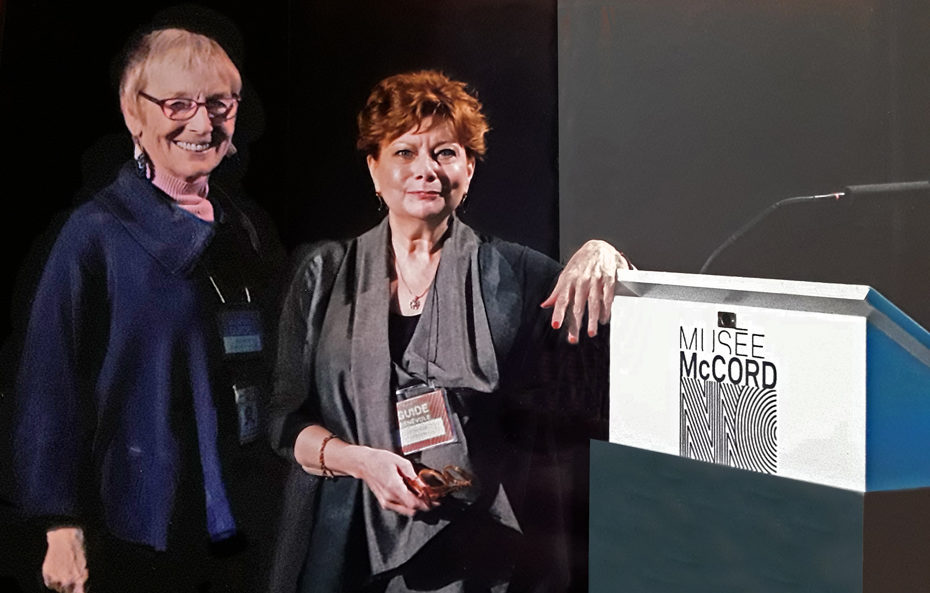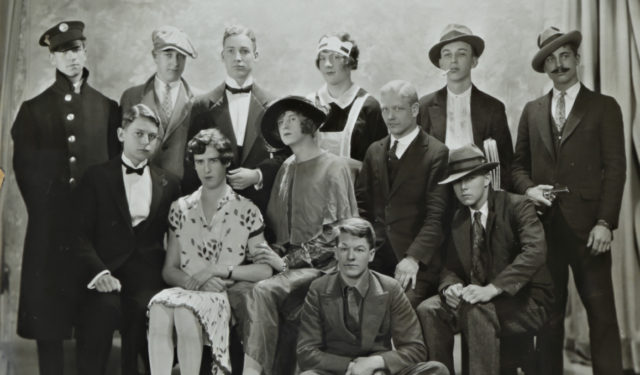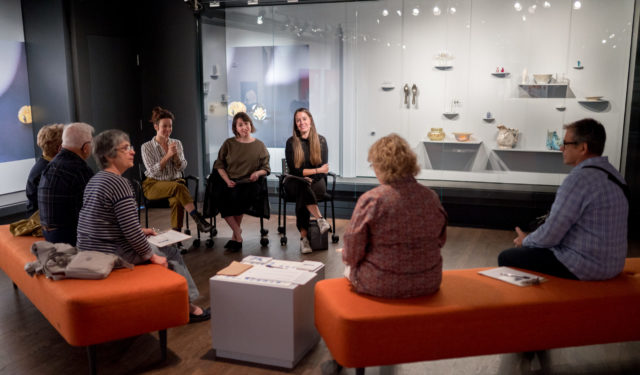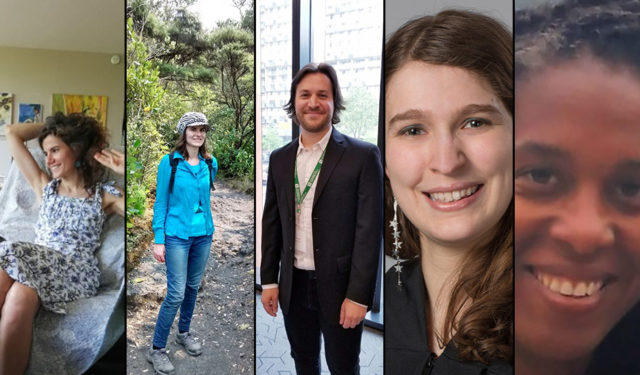Stories of Involvement – Volunteering at the McCord Museum
Learn more about the work of Museum volunteers and their valuable contributions to the museum community.
April 15, 2021
There are as many reasons to volunteer as there are volunteers. Some seek community involvement as a way to effect positive change, while others want to express their support for a cause or continue learning by sharing skills and knowledge.
Regardless of their different backgrounds and reasons for getting involved, volunteers come to the Museum because they appreciate the many opportunities for human contact and believe it is important to nurture the broader museum community.
I telephoned or had a virtual meeting with four volunteers to learn about their experiences. Despite the distance, I could clearly sense how much they all cherish the relationship they have built with the Museum, its visitors and its collections.
The Museum’s volunteer guides lead discussions with visitor groups of all ages to provide a lively, personalized look into the exhibitions. I spoke on the telephone with two of them, Kathleen Verdon, President of the Museum’s Association of Volunteer Guides, and Elizabeth Jennaway-Eaman, the McCord’s oldest volunteer guide.
Kathleen, a former member of the City of Montreal’s Executive Committee and head of cultural development, intercultural relations and tourism, told me she has long been interested in social history. Being a volunteer guide is a real commitment, to both the Museum and the community. Working on a team, with and for others, is a way to help get things done. In short, she added, it’s part of being human.
Elizabeth began volunteering at the Museum in 2001, after years of working for the Quebec government and teaching at McGill University. Becoming a volunteer guide was a logical next step for me, she explained. It’s been a long-term love affair, she added with a smile in her voice.
Susan Nish, a former librarian, does volunteer research at the Museum’s Archives and Documentation Centre, mainly in the Photography collection. The Notman Photographic Archives, the largest subdivision in the collection, are a little like the tip of an iceberg, she explained during our virtual meeting. Her work therefore consists of looking through the submerged part of the iceberg to find valuable information for the historians, genealogists and students who ask for help. Though it is a vast collection, all the photos were carefully catalogued by the Notman Studio. So many lives and so many stories are hidden among these images. I conduct research to bring the lives of these unknown people to light, to make sense of all the faces captured in these albumen prints, she declared passionately.
The last person I met with was Jacob Lithgow. He is the president of the Young McCord and a member of the McCord Stewart Museum Board of Trustees. Professionally, I am an analyst at the Caisse de dépôt et placement du Québec. Jacob loves a challenge and volunteering at the Museum provides a new type of stimulation, while enabling him to have incredibly enriching interactions and the feeling of making a positive contribution to society. When young professionals get involved, they can really make a difference. Even through my computer screen, his enthusiasm and pride in the projects he has worked on were palpable.
What I found most striking in all these testimonials is the human aspect of volunteering. As an activity, it goes beyond simply performing admittedly valuable work; it enables those involved to make connections with others. Like a friendship nurtured by smiles and shared experiences, volunteering connects people so they can work together to build a vibrant community.







